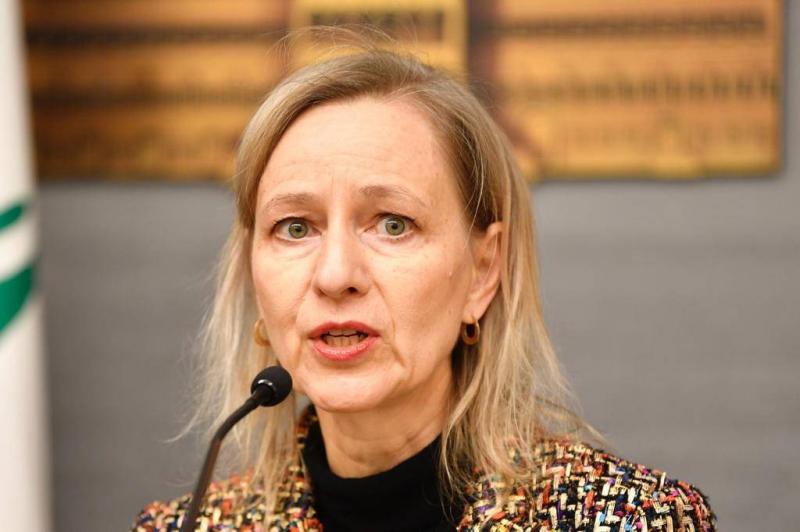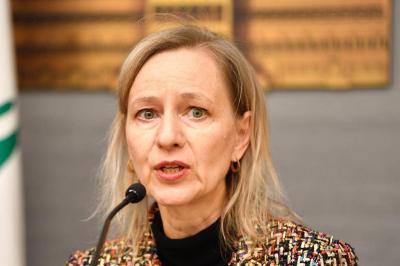Dorothy Klaus, the director of the United Nations Relief and Works Agency for Palestine Refugees in the Near East (UNRWA) in Lebanon, announced that the agency expects its preliminary report regarding the Israeli accusations of 12 UNRWA staff members' involvement in the October 7 attack on Israel to be ready by early next month. Klaus stated in comments to journalists in Lebanon after her meeting with caretaker Prime Minister Najib Mikati that the UN agency expects the donors, who suspended their funding following the accusations, to reconsider their decisions based on the investigation.
She mentioned, "Currently, we have 19 donor entities that have suspended or frozen their grants, and we have the capacity to provide services until the end of May. After that, we do not know what will happen with service continuation. We expect to find out by early May whether these donor entities will change their decision regarding the suspension of funding, and if this funding is not restored, all Palestinians in Lebanon will be affected. This includes a significant number of children, around 2,000 patients who visit our clinic, and 50,000 patients who require hospitalization support each year, as well as many patients who rely on medications, in addition to 12 refugee camps for Palestinians in Lebanon. All these entities will be affected, and we have no information on whether any donor entities will intervene to contribute."
She continued, "We know that the Lebanese government is facing a significant crisis as it hosts such a large number of refugees, and our efforts continue to communicate and talk with donors to explain the sensitive and precarious situation of Palestinian refugees, where many live below the poverty line in Lebanon."
For his part, Mikati urged donor countries to "reconsider the issue of halting funding for the United Nations Relief and Works Agency for Palestine Refugees (UNRWA), as this funding is an urgent and essential need for an issue that Palestinians did not choose but was imposed upon them."
He also called on donor countries to "view the situation of UNRWA in Lebanon exceptionally, as there are Lebanese peculiarities that must be taken into account." He emphasized that he would communicate with donor countries at the conferences and meetings he holds to urge them to reconsider this issue in light of its implications and direct impacts on the overall Lebanese reality.




